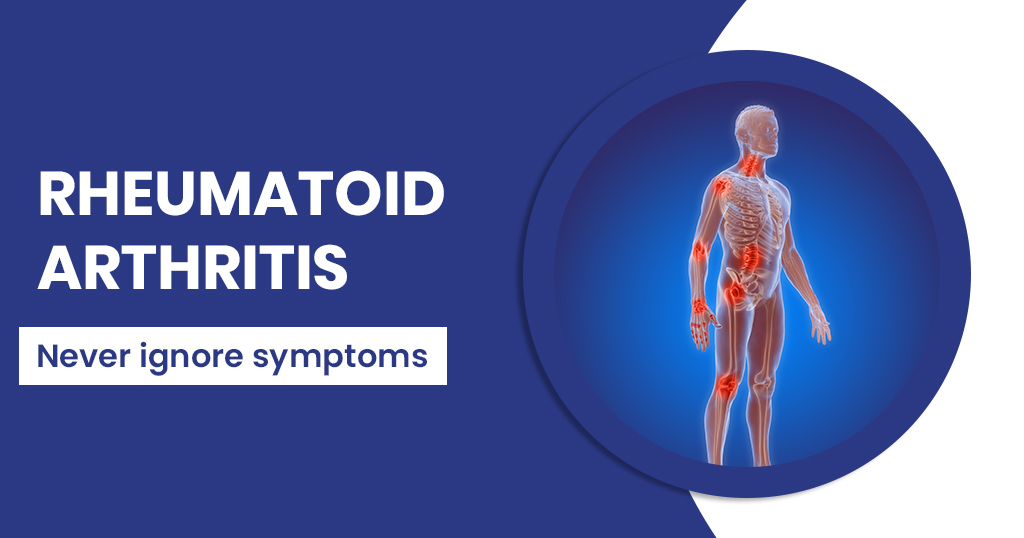Rheumatoid arthritis is a chronic autoimmune disorder that primarily affects the joints, leading to inflammation, pain, and potentially joint damage and causing a disabling degree of pain, significantly interfering with an individual’s day-to-day activities.
It can happen at any age, and can leave an impact on both of your knee joints. Knees, being the common joints are the ones that stand affected by rheumatoid arthritis.
Other than knees, your hands, feet, and wrists stand at the verge of most commonly affected joints.
While there is no known cure for rheumatoid arthritis, various treatments (especially at early levels), and support (that includes medicine, lifestyle changes, supportive treatments and even surgery too), and other lifestyle modifications can help manage the pain associated with the condition.
All these factors lessen the risk of joint damage and may put a limit on the impact of the condition.
Patients affected by rheumatoid arthritis go through symptoms like swelling, stiffness, and pain in the joint area. A sufferer may also feel mild difficulty or stiffness in the movement initially, termed as ‘morning stiffness’.
Now, in this post, let us delve more into the details about rheumatoid arthritis.
-
Medications:
There are certain medicines which are available that help in stopping your rheumatoid arthritis from getting worse, as a result, reducing your risk of further problems.
- Nonsteroidal Anti-Inflammatory Drugs (NSAIDs): These prescription drugs can help in reducing the levels of inflammation and relieving pain.
- Disease-Modifying Antirheumatic Drugs (DMARDs): These drugs are often used to slower down the progress of rheumatoid arthritis, which can further help in lessening the level of pain a patient is going through.
They work by blocking down the effects of the chemicals that are released when your immunity begins to attack your joints, which later on have the potential to cause further damage to your internal body parts such as tendons, ligaments, cartilage or even bones.
These agents have a varied mechanism of action and they act by reducing joint pains or swellings, lowering down the levels of acute inflammation in blood.
- Biologic Drugs: Biologics target specific molecules involved in the immune response, providing relief from pain and slowing the disease’s progression.
- Corticosteroids: These are anti-inflammatory agents and can provide rapid pain relief and are often used for short-term symptom control.
They may be prescribed as medications or as injections directly into the joint spaces so as to decrease the joint inflammation.
-
Physical Therapy:
Physical therapists can design a layout of custom-based exercise programs to improve the patient’s joint function and reduce their pain. Range-of-motion exercises and strength training can prove to be really beneficial and would prevent you from looking out for any knee replacement hospital in South Delhi.
-
Occupational Therapy:
Occupational therapists can suggest modifications to daily activities and recommend assistive devices to reduce joint stress and pain.
-
Rest:
Adequate rest is essential during flare-ups to allow the joints to recover. Using assistive devices like splints can help protect affected joints.
-
Hot and Cold Therapy:
Undergoing therapies by making use of heat or cold packs can help in removing pain and lessening the effect of inflammation. Make an experiment to find out which works perfect for you.
-
Diet:
Maintaining a healthy, balanced diet can help control inflammation. Some people with rheumatoid arthritis have found relief by adopting an anti-inflammatory diet, which includes foods rich in omega-3 fatty acids, antioxidants, and avoiding processed foods.
-
Stress Management:
Stress can exacerbate the symptoms of rheumatoid arthritis. One shall definitely practice the techniques that help in relaxation of mind and body such as deep breathing, meditation, or yoga. It can also help in reducing the level of pain you are facing.
-
Weight Management:
Maintaining and balancing a healthy body weight can lower down the strain and stress on your joints, especially those in the lower area.
-
Supplements:
Some supplements like fish oil, turmeric, and ginger have anti-inflammatory properties and they may provide relief when taken under the supervision of a medical practitioner.
-
Medication Adjustments:
Regularly review your medications with your rheumatologist to ensure they are effectively managing your symptoms. Adjustments may be needed over time.
-
Support Groups:
Joining support groups or talking to a mental health professional can help you cope with the emotional challenges of living with rheumatoid arthritis, which can indirectly impact pain perception.
-
Alternative Therapies:
Some people with rheumatoid arthritis finds relief through complementary therapies like acupuncture or chiropractic care. But it is always advisable to have a consultation with your healthcare professional before switching to these treatments.
-
Surgery:
In severe cases, joint surgery may be a required procedure to repair or replace your damaged joints. Consult with your rheumatologist to determine if this is a practically accessible option.
-
Medication Side Effects:
Be aware of potential side effects of medications and discuss any concerns with your healthcare provider. Balancing pain relief and side effects is essential.
-
Stay Informed:
Keep up-to-date on the latest advancements in rheumatoid arthritis treatments. New therapies and medications are continually emerging.
It is important to note that the management of rheumatoid arthritis pain is highly individualized. What works for one person may not work for another individual, so a personalized treatment plan should be developed in consultation with a healthcare professional.
Additionally, early diagnosis and treatment are crucial for effectively managing rheumatoid arthritis and reducing the risk of joint damage.
As rheumatoid arthritis results in knee pain and stiffness, you might have to look out for knee pain treatment in Delhi.
Conclusion:
While there is no cure for rheumatoid arthritis, various approaches can help alleviate pain and improve your quality of life. A combination of medication, lifestyle changes, and therapies tailored to your specific needs can make living with rheumatoid arthritis more manageable.
There are various medicines available that help stop rheumatoid arthritis from getting in a worse condition, thus, reducing your risks of problems that may further arise.
Consult with your healthcare team to develop a comprehensive and effective pain management plan.









